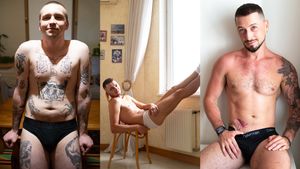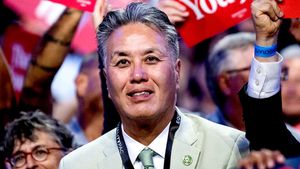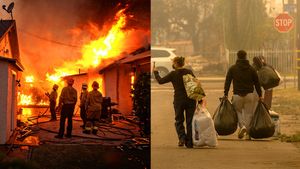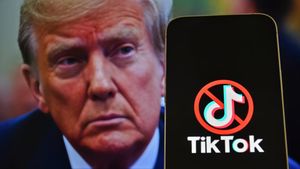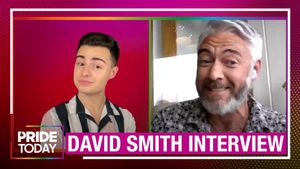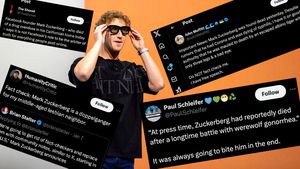
Treatment GuideJust DiagnosedSex & DatingAfrican AmericanStigmaAsk the HIV DocPrEP En EspañolNewsVoicesPrint IssueVideoOut 100
CONTACTCAREER OPPORTUNITIESADVERTISE WITH USPRIVACY POLICYPRIVACY PREFERENCESTERMS OF USELEGAL NOTICE
© 2025 Pride Publishing Inc.
All Rights reserved
All Rights reserved
By continuing to use our site, you agree to our Private Policy and Terms of Use.
For people living with HIV, antiretroviral medications have been shown to be effective in preventing progression to AIDS and in improving their quality of life. But these same meds used to treat HIV infection have another benefit; they can be given to an HIV-negative individual who has been exposed to HIV, either through a high-risk sexual or needle-sharing exposure. This type of treatment is called nonoccupational postexposure prophylaxis, or nPEP. For example, if an HIV-positive person has sex with someone who is negative and a condom breaks, the person exposed should be offered antiretrovirals. In fact, giving someone nPEP can reduce the partner's chances of becoming HIV infected by up to 80%! There are two key points that people need to know about nPEP. For one, the quicker that one starts the therapy after the exposure, the more likely nPEP is going to work. The Centers for Disease Control and Prevention says that nPEP is still likely to work for up to 72 hours after the exposure occurred. But one should not wait that long to make the decision or to tell his or her partners to seek care. Every hour that goes by increases one's chances of becoming infected. The other key point that is important to remember is that nPEP needs to be taken for 28 days. Many people who start nPEP do not complete the full 28-day course and thus are less likely to prevent HIV infection. The choice of which meds to give depends on several factors. In New York, for example, we typically give Combivir and Viread. However, if the HIV-positive person that exposed the person has a drug-resistant virus, we typically change the regimen to something that the HIV-positive person's virus is sensitive to. Sometimes that can mean giving someone a lot of meds, including a protease inhibitor or some of the newer drugs used to treat HIV. Oddly, people who are HIV-negative seem to not tolerate these meds as well as people that are HIV-positive, and for that reason it is important to follow patients during their month-long therapy. Although nPEP has been available for almost a decade, very few people know about it or have ready access to the meds. One reason for this is that many doctors and hospitals have been slow to pick this up and are concerned that offering nPEP to people will increase unsafe sex and drug use. Also, many patients feel embarrassed or awkward about asking their providers about nPEP. But every person has a right to the treatment. And nPEP should also be discussed with every HIV-positive patient as a prevention tool in the event of a high risk exposure with someone who is negative or whose serostatus is unknown. Urbina is an HIV specialist and the medical director of HIV education and training at St. Vincent's Comprehensive HIV Center as well as an associate professor of medicine and an associate professor of clinical public health at New York Medical College.
From our Sponsors
Most Popular
Why activist Raif Derrazi thinks his HIV diagnosis is a gift
September 17 2024 12:00 PM
How fitness coach Tyriek Taylor reclaims his power from HIV with self-commitment
September 19 2024 12:00 PM
Out100 Honoree Tony Valenzuela thanks queer and trans communities for support in his HIV journey
September 18 2024 12:00 PM
Creator and host Karl Schmid fights HIV stigma with knowledge
September 12 2024 12:03 PM
The freedom of disclosure: David Anzuelo's journey through HIV, art, and advocacy
August 02 2024 12:21 PM
From ‘The Real World’ to real life: How Danny Roberts thrives with HIV
July 31 2024 5:23 PM
Eureka is taking a break from competing on 'Drag Race' following 'CVTW' elimination
August 20 2024 12:21 PM
California confirms first case of even more deadly mpox strain
November 18 2024 3:02 PM
Plus: Featured Video
Latest Stories
A camp for HIV-positive kids is for sale. Here's why its founder is celebrating
January 02 2025 12:21 PM
This long-term HIV survivor says testosterone therapy helped save his life.
December 16 2024 8:00 PM
'RuPaul's Drag Race' star Trinity K Bonet quietly comes out trans
December 15 2024 6:27 PM
Ricky Martin delivers showstopping performance for 2024 World AIDS Day
December 05 2024 12:08 PM
AIDS Memorial Quilt displayed at White House for the first time
December 02 2024 1:21 PM
Decades of progress, uniting to fight HIV/AIDS
December 01 2024 12:30 PM
Hollywood must do better on HIV representation
December 01 2024 9:00 AM
Climate change is disrupting access to HIV treatment
November 25 2024 11:05 AM
Post-election blues? Some advice from mental health experts
November 08 2024 12:36 PM
Check out our 2024 year-end issue!
October 28 2024 2:08 PM
Meet our Health Hero of the Year, Armonté Butler
October 21 2024 12:53 PM
AIDS/LifeCycle is ending after more than 30 years
October 17 2024 12:40 PM
Twice-yearly injectable lenacapavir, an HIV-prevention drug, reduces risk by 96%
October 15 2024 5:03 PM
Kentucky bans conversion therapy for youth as Gov. Andy Beshear signs 'monumental' order
September 18 2024 11:13 AM
Study finds use of puberty blockers safe and reversible, countering anti-trans accusations
September 11 2024 1:11 PM
Latinx health tips / Consejos de salud para latinos (in English & en espanol)
September 10 2024 4:29 PM
The Trevor Project receives $5M grant to support LGBTQ+ youth mental health in rural Midwest (exclusive)
September 03 2024 9:30 AM
Introducing 'Health PLUS Wellness': The Latinx Issue!
August 30 2024 3:06 PM
La ciencia detrás de U=U ha estado liberando a las personas con VIH durante años
August 23 2024 2:48 PM
Trending stories
Recommended Stories for You





































